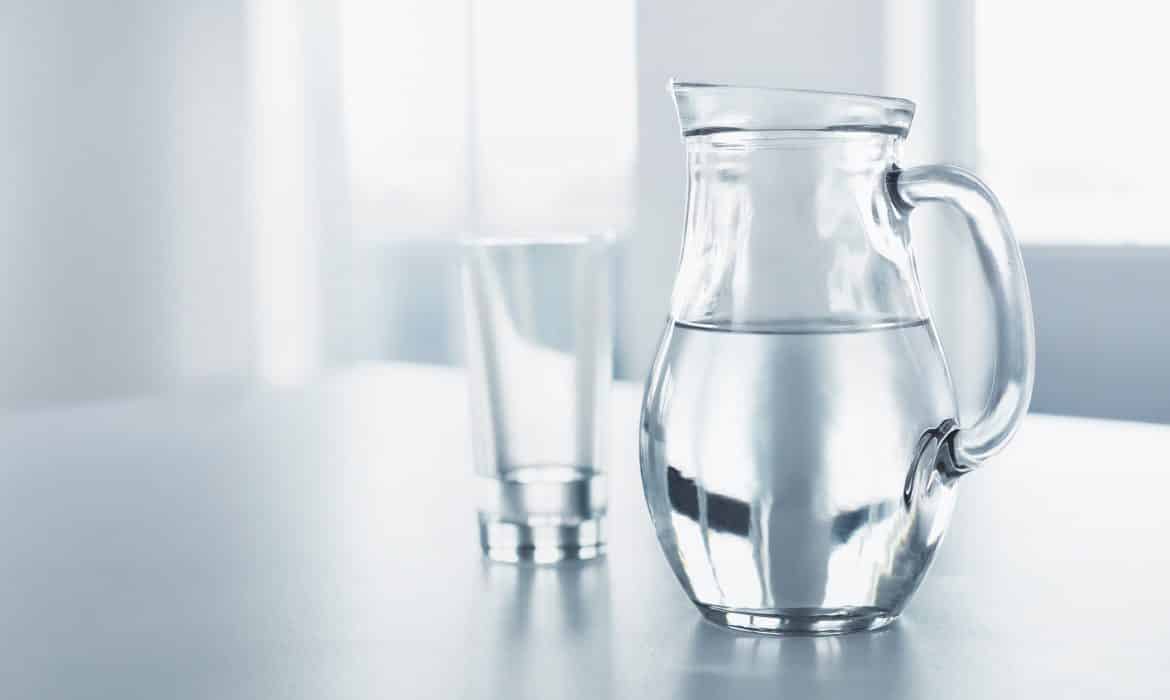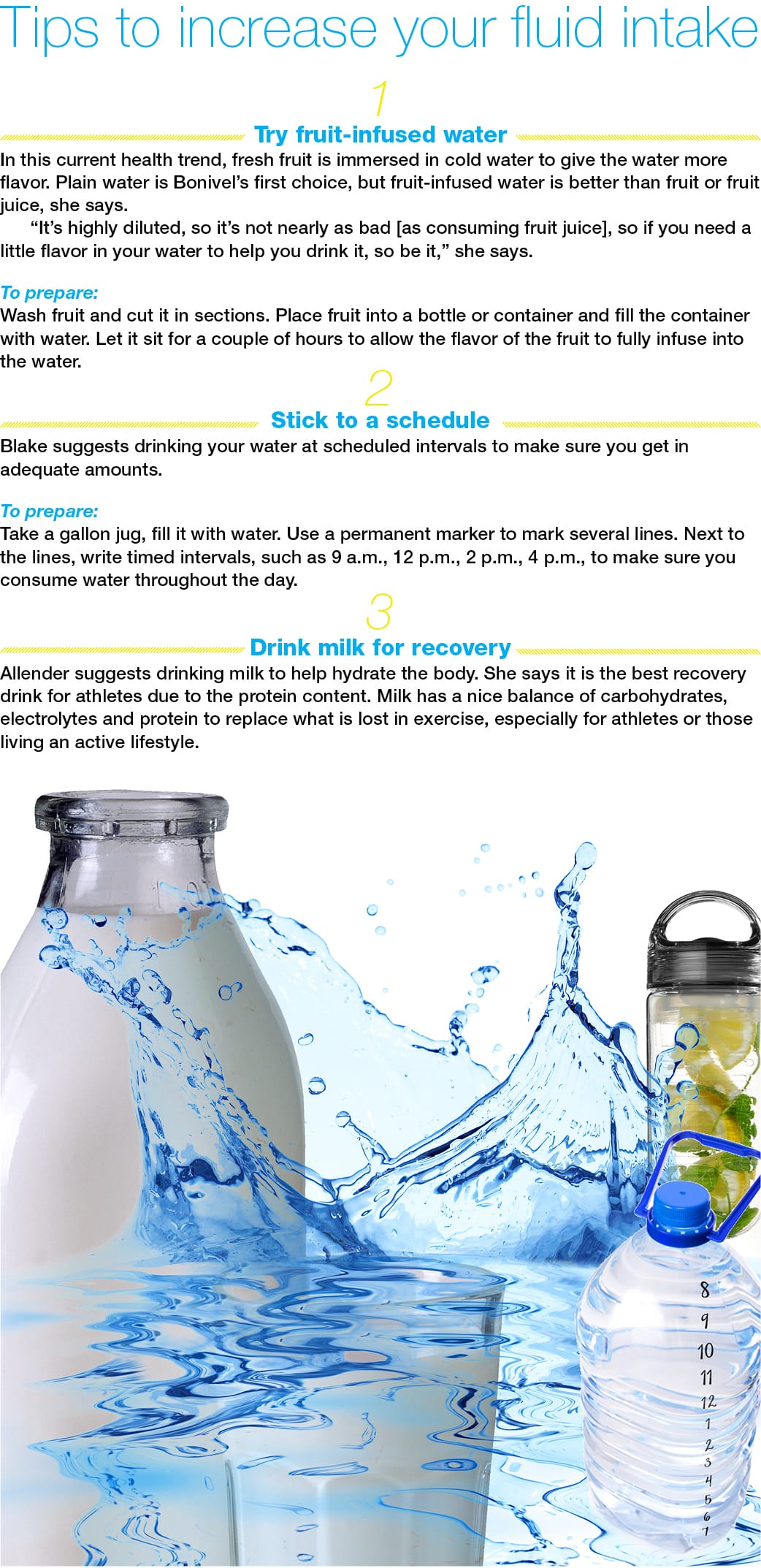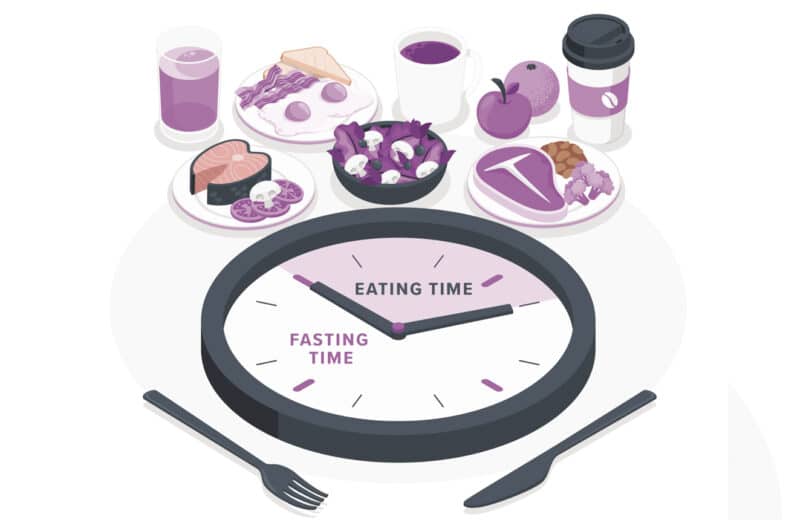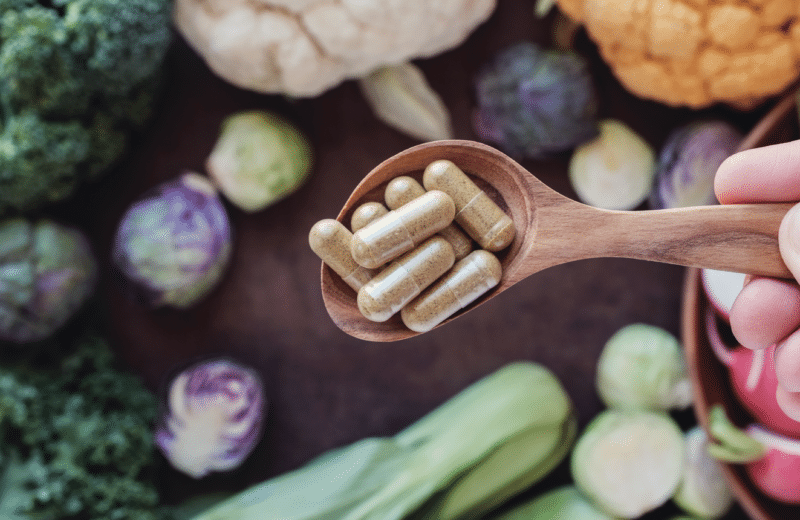You know that you’re supposed to drink plenty of water every day, but do you know why? Not drinking enough water can have some startling consequences, including a bloated belly, constipation, even weight gain. Maintaining the right balance of water is essential to keep the body functioning properly—especially during warm weather when you so easily can become dehydrated.
When you’re out in the heat and humidity—whether running errands, hiking or swimming—you put yourself at risk for dehydration. By the time you’re thirsty, it’s too late.
“Thirst is the last sign of dehydration,” says Jessica Allender, MS, RD, LDN, of Coral Nutrition Coaching in Hyde Park.
We are mostly made up of water. Our lungs are composed of 83 percent water; muscles and kidneys are 79 percent; brain and heart are 73 percent; skin is 64 percent; and bones are 31 percent.
Our bodies use water for a myriad of functions: to form saliva for digestion, regulate the body’s temperature, act as a shock absorber for the brain and spinal cord, lubricate the joints and deliver oxygen throughout the body.
It’s imperative to give the body what it needs, and not the unhealthy substitutes we’ve grown accustomed to. Drinking soda, caffeinated drinks, drinks with artificial sweeteners and sports drinks can actually contribute to dehydration. “Your body has to pull water into the colon to help digest the sugars,” Allender explains.
Even though sugary drinks feel wet in the mouth, they do nothing for the body’s hydration status, she says. Sugary drinks make the kidneys work harder. And when the kidneys have to work harder to function properly you can set yourself up for many other health concerns.
One of those concerns is constipation. “Bowels lock up. There isn’t enough fluid in them for regular movement,” says La’Drissa Bonivel, international professional athlete and owner of ProFit Studio in Bronzeville.
“You have this belly full of air because you’re not drinking water. You’re eating food that’s not really digesting because [your body] doesn’t have what it needs in order to push the food through, use it properly and eliminate it,” Bonivel says.
Dry mouth, bad breath, dry skin and bloated belly all can result from dehydration, Bonivel adds. That bloated belly also could be the result of weight gain—another side effect of dehydration.
“Thirst can mimic hunger,” says Tracy Blake, RDN, nutritionist at Palos Community Hospital. “When you’re starting down that dehydration path, you can sometimes crave sweets. Instead of reaching for something sweet to eat, drink a glass of water first.”
The solution is simple: consume enough water. But how much water is enough?
There are almost as many explanations for the right amount of water as there are days in the week. Some experts say to drink half your body weight in ounces (if you weigh 200 pounds, drink 100 ounces of water or about 12 cups per day). Some say 1 to 2 liters daily; some stick with the old standard of eight 8-ounce glasses; and some believe age and gender should factor into the equation. Regardless, the general consensus is to drink enough water until your urine is clear.
Think of water as a nutrient that your body needs to function optimally, and make sure you’re drinking enough to garner all the benefits of a fully hydrated system.













